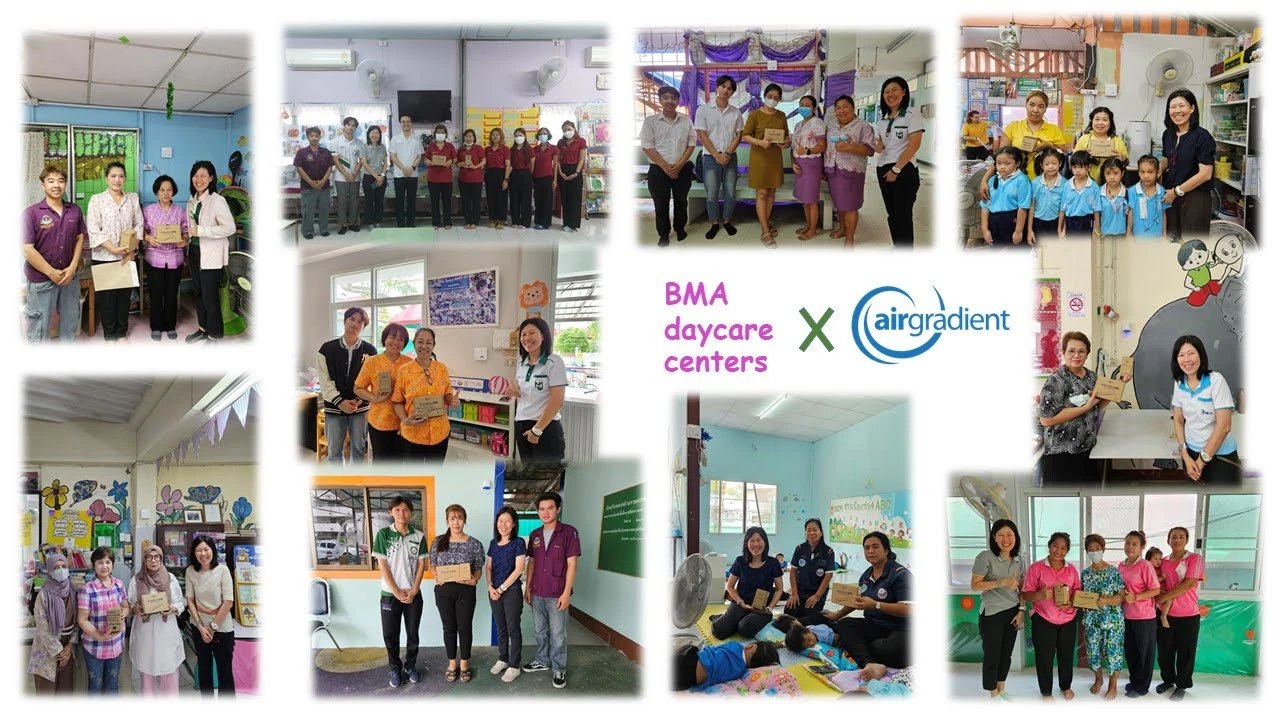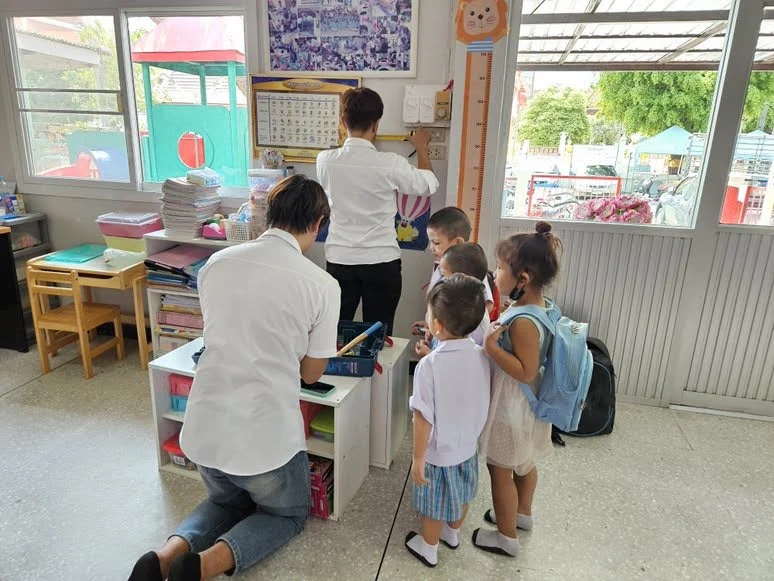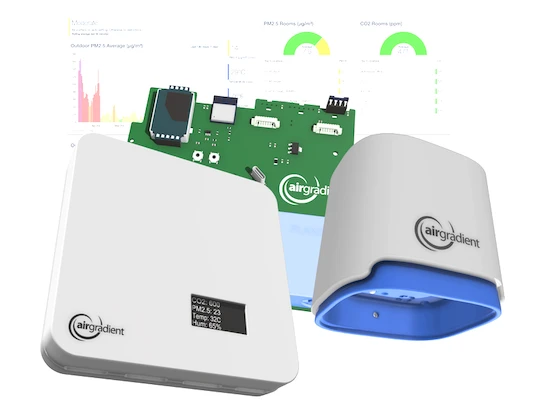Open and Accurate Air Quality Monitors
We design professional, accurate and long-lasting air quality monitors that are open-source and open-hardware so that you have full control on how you want to use the monitor.
Learn MoreAmidst the concerning levels of air pollution, the Bangkok Metropolitan Administration (BMA) proposed dust-free classrooms for 429 preschools under Governor Chatchart Sittipunt’s leadership. However, the initiative faced opposition from the Bangkok Metropolitan Council due to financial concerns, leaving 2024 without substantial progress.
Recognizing the urgent need to protect children, a bottom-up approach was adopted. This involved collaboration with media, NGOs, BMA leaders, academics, and private sectors to fill the governance gap. Challenges included financial constraints and political resistance, but strategic collaborations proved effective. Media raised awareness, NGOs facilitated community engagement, academics provided expertise, and the private sector offered resources. Despite institutional hurdles, the grassroots effort demonstrated the resilience of civil society in prioritizing children’s health.
Efforts have been undertaken to enhance the accessibility and relevance of adaptation guidelines for schools and daycare centers, building upon existing frameworks established by the Ministry of Public Health (MOPH). Currently, teachers rely on data from websites and utilize color flags to indicate air pollution danger. Out of 1473 classrooms assessed, 56.90% (985 classrooms) across 267 schools lack air conditioning and fresh air systems, leaving occupants vulnerable in case of worsening air pollution. Among the remaining 758 classrooms with air conditioning systems, inadequate air ventilation or recirculation may lead to elevated levels of PM2.5, CO2, or TVOC, posing health risks to children.

To further integrate air quality sensor technology provided by Air Gradient into a pilot project focused on data collection during episodes of air pollution in ten daycare centers, a pivotal meeting was held on January 26th. This gathering facilitated discussions between Achim Haug, Founder & CEO of AirGradient and Associate Professor Maneerat Ongwandee, representing the Institute of Metropolitan Development at Nawamindradhiraj University.
The collaborative mission entails the collection of vital air quality data within ten daycare centers situated in Bangkok, with a primary focus on enhancing air pollution adaptation strategies. AirGradient with the support of Amazon Web Services Europe generously agreed to sponsor ten indoor air sensors and ten outdoor sensors. Following the acquisition of these sensors, the data will undergo comprehensive analysis by the expert team at the Institute of Metropolitan Development. This analysis will serve as a foundational pillar for drawing policy implications that will be instrumental in scaling up initiatives through the support and collaboration of the Bangkok Metropolitan Administration.

Initial observations revealed the challenging situation children in daycare centers face. Due to limitations in the current daycare infrastructure, rooms cannot be adequately sealed or regulated to maintain suitable temperatures. Consequently, most daycare centers are grappling with unhealthy levels of PM 2.5, even indoors. While some centers have installed air conditioning, providing thermal comfort, they still face elevated Carbon Dioxide levels, peaking at around 1,500 ppm during the daytime due to insufficient ventilation.
Existing technology limitations, financial burdens, and the questionable compliance in using personal protective equipment like masks during Thai hot summer further complicate the situation. Beyond infrastructure and management practices, these observations highlight the importance of prioritizing resources and investments effectively.
To ensure the safety of vulnerable groups, including children in Bangkok, shelter designs must prioritize room sealability, proper ventilation, air recirculation, and thermal comfort. We urge both the central and local governments to prioritize solving Thailand’s air pollution issues at their root causes. By investing in safe shelters for vulnerable individuals, we can uphold people’s rights to health and a clean environment while preventing further environmental degradation.
Curious about upcoming webinars, company updates, and the latest air quality trends? Sign up for our weekly newsletter and get the inside scoop delivered straight to your inbox.
Join our Newsletter
We design professional, accurate and long-lasting air quality monitors that are open-source and open-hardware so that you have full control on how you want to use the monitor.
Learn More